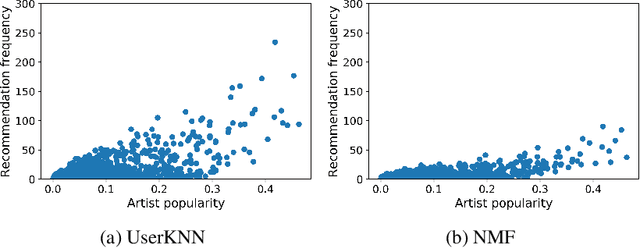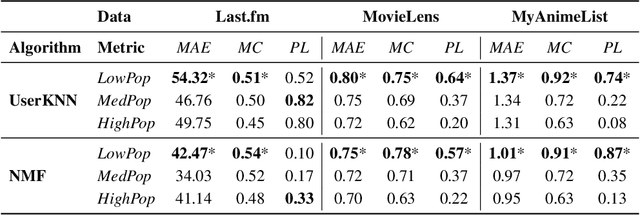Investigating Popularity Bias Amplification in Recommender Systems Employed in the Entertainment Domain
Paper and Code
Apr 07, 2025


Recommender systems have become an integral part of our daily online experience by analyzing past user behavior to suggest relevant content in entertainment domains such as music, movies, and books. Today, they are among the most widely used applications of AI and machine learning. Consequently, regulations and guidelines for trustworthy AI, such as the European AI Act, which addresses issues like bias and fairness, are highly relevant to the design, development, and evaluation of recommender systems. One particularly important type of bias in this context is popularity bias, which results in the unfair underrepresentation of less popular content in recommendation lists. This work summarizes our research on investigating the amplification of popularity bias in recommender systems within the entertainment sector. Analyzing datasets from three entertainment domains, music, movies, and anime, we demonstrate that an item's recommendation frequency is positively correlated with its popularity. As a result, user groups with little interest in popular content receive less accurate recommendations compared to those who prefer widely popular items. Furthermore, we aim to better understand the connection between recommendation accuracy, calibration quality of algorithms, and popularity bias amplification.
 Add to Chrome
Add to Chrome Add to Firefox
Add to Firefox Add to Edge
Add to Edge